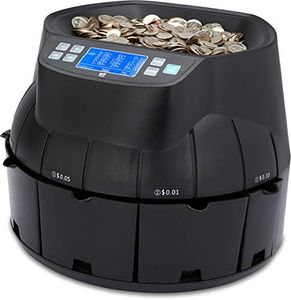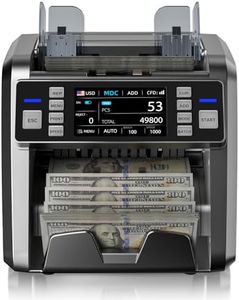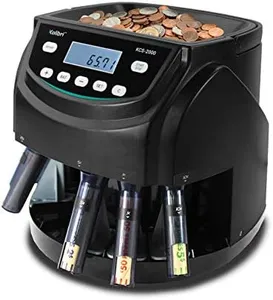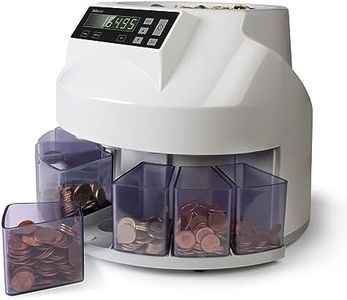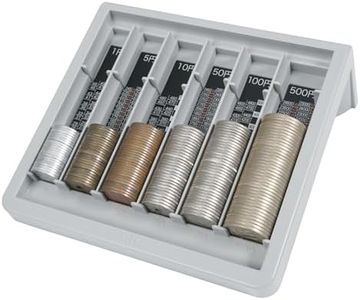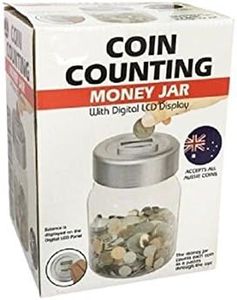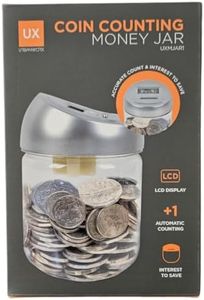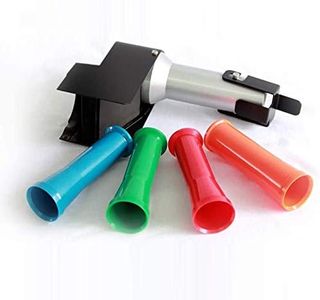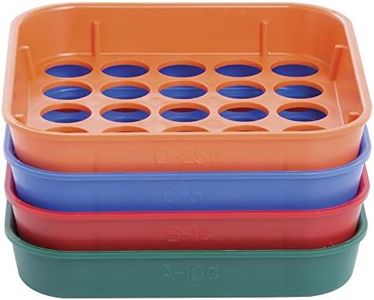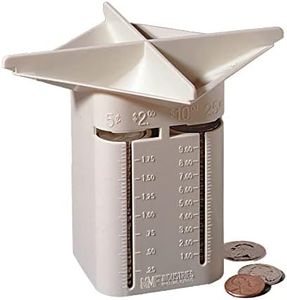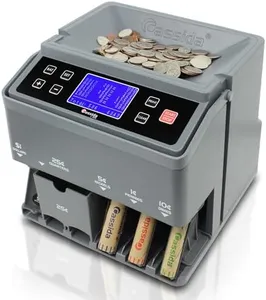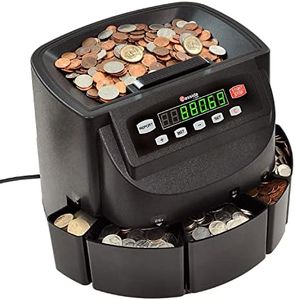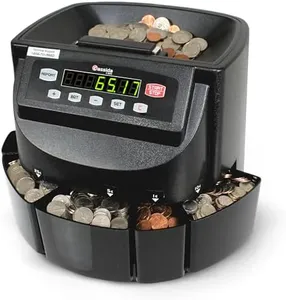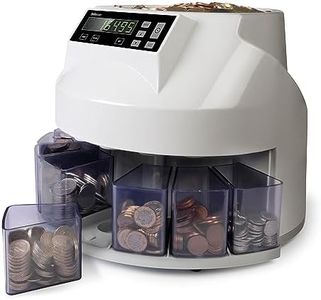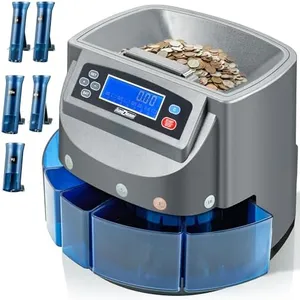We Use CookiesWe use cookies to enhance the security, performance,
functionality and for analytical and promotional activities. By continuing to browse this site you
are agreeing to our privacy policy
10 Best Coin Counters
From leading brands and best sellers available on the web.By clicking on a link to a third party's website, log data is shared with that third party.
Buying Guide for the Best Coin Counters
When looking to buy a coin counter, it’s important to think about how often you’ll use it and what types of coins you need to handle. Coin counters make sorting and counting loose change much faster and more accurate, which is great for businesses, organizations, and even individuals who deal with a lot of coins. Choosing the right coin counter involves understanding the main features and how they relate to your specific needs. Focus on how and where you’ll use the machine to make the best choice.Coin Counting SpeedCoin counting speed refers to how many coins the machine can process in one minute. This matters because if you have large volumes of coins, a faster machine saves time and increases efficiency. Lower speed models might count around 100-200 coins per minute, which works fine for occasional home use. Medium-speed machines can handle 200-500 coins per minute, suitable for small businesses or community groups. High-speed machines go above 500 coins per minute and are best for environments where thousands of coins are counted regularly. Think about how many coins you actually need to process at a time; this will help you pick the right speed.
Hopper CapacityHopper capacity is the maximum number of coins the machine can hold at once before it needs to be refilled. A larger hopper means you can process more coins at once without stopping, making it more convenient for big jobs. Small hoppers (100-300 coins) are good for occasional users, while medium ones (300-1000 coins) suit moderate use, and large hoppers (over 1000 coins) are best when you need to count lots of coins at once. Assess the usual amount of coins you deal with in a single go to decide what hopper size suits you best.
Coin Sorting AbilitySome coin counters simply count coins, while others can sort them by denomination. Sorting ability is crucial if you regularly deal with mixed coins and need to separate them. There are basic counters that only tally total coins, semi-automatic sorters that require some manual work, and fully automatic sorters that divide coins into separate bins. Think about whether your coins are already sorted or mixed and whether you need the convenience of automatic sorting.
Display Type and Ease of UseThe display is where you read the results, such as the number of coins counted and possibly the values. Easy-to-read LCD or LED displays help prevent mistakes. Simpler units might have a small basic screen, while more advanced ones offer multiple readings at once. If you prefer straightforward operation or may share the machine with others, opt for a model with a clear display and simple controls.
Counterfeit DetectionSome advanced coin counters are equipped with tools to spot fake coins using weight, size, or magnetic properties. This feature is important for businesses or organizations handling large volumes of coins where counterfeit coins can be an issue. For personal or light commercial use, this might not be necessary, but in higher-stakes environments, it’s a valuable extra layer of security. Think about your setting and the likelihood of encountering fake coins before deciding if you need this feature.
Noise LevelCoin counters can be noisy, especially larger, faster models. Noise level might be expressed as decibels or simply described in product specs. If you’ll use the counter in a quiet retail or office space, picking a quieter machine adds comfort. For environments where noise isn’t an issue, this doesn’t matter as much. Consider where you’ll use the device and decide if you need to pay attention to noise levels.
Maintenance and CleaningRegular cleaning and maintenance helps your coin counter work properly over time. Some machines are easier to take apart for cleaning and have instructions or features for low-maintenance use. If you plan to use your coin counter heavily or in dusty environments, opt for a model known for easy upkeep. If it’s just for occasional use, this will be less of a concern.
